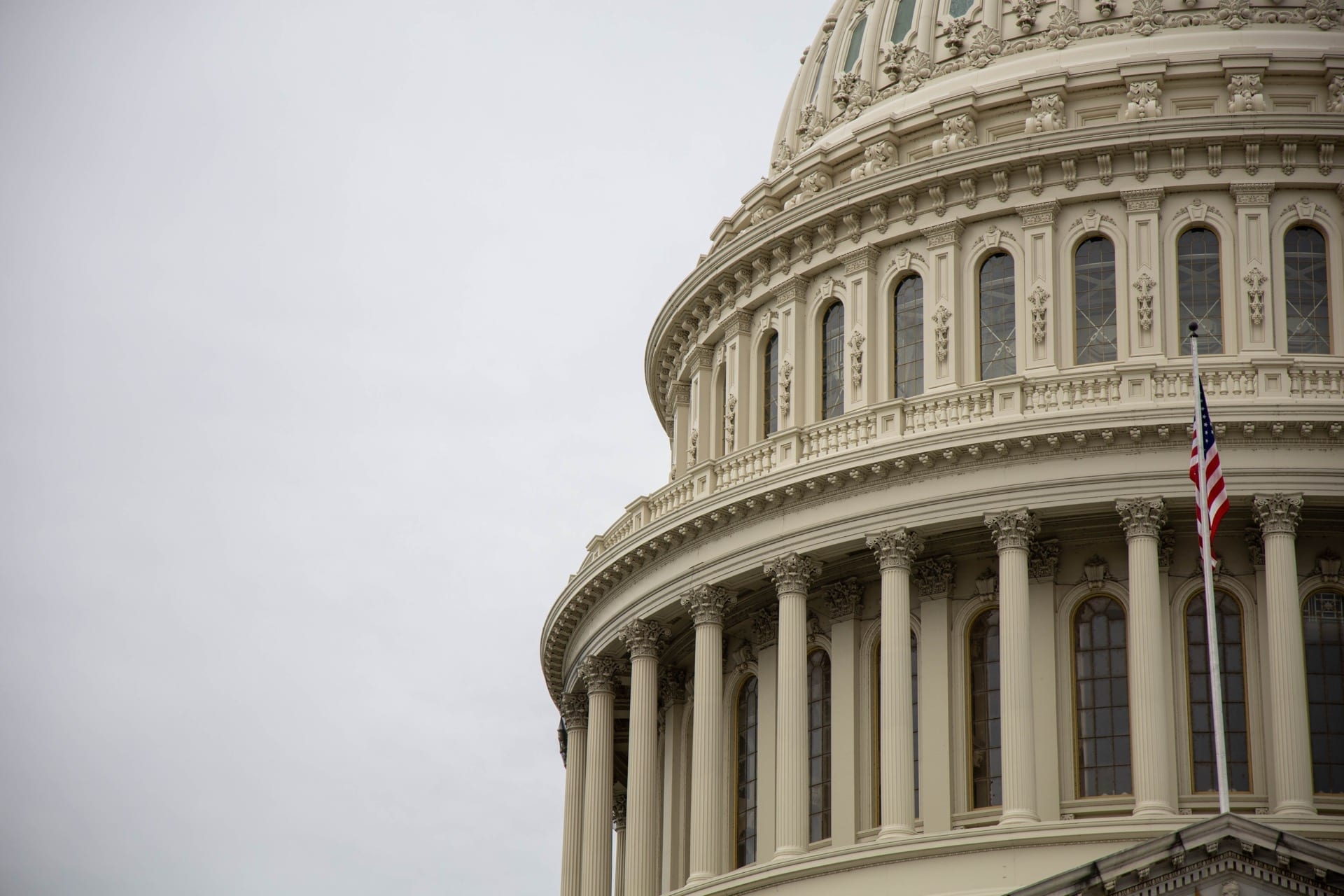Despite recent coverage of shifting attitudes toward the war in Iraq and the Democratic Congress, the latest public polls show the country’s political environment remains fundamentally unchanged, with President Bush and Republicans in Congress still deeply unpopular and Democrats maintaining a significant electoral advantage at the congressional level one year before the next election. Broad disapproval of Congress as an institution reflects the massive change dynamic still driving the electorate and is not directed at the new Democratic leadership.
For nearly a year now, we have tracked the surprising consistency in our country’s political environment. While there have certainly been some important changes, the broad contours of a historically unpopular president, a still unpopular war, a stable and significant partisan advantage for Democrats, and an overwhelming desire for change have remained stubbornly constant. Now, with less than a year to go until the 2008 election, the media and political professionals are searching for signs of the shifts which they feel are inevitable, particularly on Iraq and attitudes toward the two parties. As a result, we have read a great deal recently about two supposed turning points — ‘success’ for the surge in Iraq changing public attitudes toward the war and record low approval marks for Congress undermining the Democrats’ ascendancy in the 2008 elections.
Public polls conducted this month, however, show that the political environment remains fundamentally unchanged and that both of the trends noted above show little likelihood of altering it in any meaningful way.
Americans remain overwhelmingly pessimistic about the country’s direction, and the hunger for change that drove the 2006 election has only grown stronger over the past year. Less than 1-in-4 Americans believe the country is moving in the right direction, compared to nearly 70 percent who express dissatisfaction with the current direction. The new NBC News/Wall Street Journal poll contains an even harsher test, in which 57 percent of Americans say the country is now ‘in a state of decline’ while just 38 percent say this is not the case. The issues contributing to this profound discontent are the same as they have been for several years now, with the public’s frustration only growing deeper as the country fails to make progress on any of these fronts.
The most significant movement in the latest polls is the rising level of economic insecurity among Americans. For years, we have documented the growing desperation of Americans seeking to cover rapidly increasing costs in energy, health care, education, and a host of everyday necessities as incomes remain stagnant. A steady drumbeat of stories about excessive CEO pay, tax breaks for the wealthy and big businesses, and corrupt politicians abusing their positions to line their own pockets have added fuel to the fire, even as Iraq dominated the media coverage and the larger political environment. Now, with gas prices once again rising over $3 per gallon and the subprime mortgage mess creating ripple effects in the markets, banking, and the housing industry that are likely only going to get worse, we are seeing signs of a potential breaking point. While the war in Iraq remains the dominant concern for Americans, economic concerns — especially health care, jobs, and energy costs — have now emerged as a close second.
Throughout the year, we keep a close eye on consumer confidence as a critical measure of Americans’ attitudes. At this time of year, we have traditionally seen consumer confidence spike as consumers head out shopping for the holiday season. But this week, along with Black Friday came the lowest consumer confidence since the aftermath of Hurricane Katrina two years ago. The ABC News/Washington Post Consumer Comfort Index fell another 2 points to -21 this week, 12 points below its 2007 average. This deterioration of confidence has been driven by continuing declines in ratings of the national economy and the buying climate. With oil prices at record levels and most economists predicting that the crises in the housing and banking industries will only get worse in the next six months, the fact that not even the start of the holiday season could check the steady decline in consumer confidence suggests that economic concerns will become increasingly central to the public debate in 2008.
DEMOCRATS MAINTAIN HUGE PARTISAN ADVANTAGE
President Bush continues to suffer some of the lowest approval marks of any president in modern history, with his ratings essentially stagnant now for four months. While Truman and Nixon both fell below 30 percent during their presidencies, no president in history has suffered such low approval ratings for such a sustained period of time; Bush’s approval has now been at or below 35 percent for a year, with disapproval at 60 percent or higher every month over the same period. This month, across eight polls, his average approval is just 33 percent (down 1 point from October) with disapproval at 63 percent (up 2 points from a month ago).
This month’s AP/Ipsos survey shows large majorities continuing to disapprove of Bush’s performance on Iraq (32 percent approve, 65 percent disapprove), ‘foreign policy issues and the war on terrorism’ (40 percent approve, 56 percent disapprove), and ‘domestic issues like health care, education, the environment, and energy’ (34 percent approve, 64 percent disapprove). On the economy, Bush’s rating has reached a new low this month at 32 percent approve, 65 percent disapprove).
DEMOCRATS MAINTAIN HUGE PARTISAN ADVANTAGE
In the face of Bush’s consistently weak approval marks, Republicans are always quick to point out that, after a significant post-election bump, approval marks for Congress have reached new record low levels — 22 percent approve, 69 percent disapprove across three surveys this month. While Republicans would have us believe this represents a rejection of the new Democratic leadership in Congress, public polls have consistently shown this not to be true.
While majorities disapprove of the performance of both parties in Congress, Democrats in Congress have maintained a significantly higher approval level than their Republican counterparts. And this month’s USA Today/Gallup poll shows Americans continue to hold favorable views of the Democratic Party (54 percent favorable, 37 percent unfavorable) and decidedly unfavorable views of the Republican Party (40 percent favorable, 50 percent unfavorable). The ABC News/Washington Post survey finds a smaller difference but the same dynamic — majorities holding favorable views of the Democrats (51 percent favorable, 45 percent unfavorable) and unfavorable views of the Republicans (39 percent favorable, 56 percent unfavorable).
Most importantly, Democrats continue to enjoy a massive and sustained advantage in the generic congressional contest. Three polls this month show Democrats holding an average lead of 11 points (51 to 40 percent) in the generic congressional ballot. This advantage has been remarkably consistent throughout the year, even in surveys that show specific Republican candidates running even or ahead of Democratic candidates in the presidential race. The Democratic advantage in the generic congressional contest one year before the 2006 election was also 11 points. With Democratic incumbents polling well ahead in their districts and a combination of retirements and electoral trends putting dozens of Republicans seats in play, a sustained advantage of this size portends another strong Democratic wave in next year’s elections.
PROGRESS DOES NOT EQUAL SUPPORT FOR WAR
A recent shift in media coverage of the war in Iraq and a reduction from the record fatality counts reached this Spring has produced new data that has led many Republicans and conservative commentators to declare that we have reached a ‘turning point’ in public attitudes toward the war in Iraq. President Bush has used the same premise in arguing for further Iraq war funding without any strings attached and laying a foundation for his recently revealed effort to negotiate a massive long-term military presence in Iraq. (See TPMMuckraker for more detail) The problem with their arguments is that they miss the impressive discernment of the American public. A dramatic rise in assessments about progress have been matched by stark stability in attitudes about troop reductions and assessments of Bush’s Iraq performance.
Pew Research Center released a very interesting poll this week that captures the core dynamics of public attitudes on Iraq very well. On the one hand, there is a sharp increase in the number of Americans who see some positive progress for our military in Iraq. The Pew poll shows an even split between those who believe the U.S. military effort in Iraq is going ‘very well’ (11 percent) or ‘fairly well’ (37 percent) and those who feel it is going ‘not too well’ (29 percent) or ‘not well at all’ (19 percent). While intensity remains on the side of those who view the current direction pessimistically, this is the first time since early September 2006 that a majority did not rate the current direction negatively.
In addition, the Pew survey identifies specific areas where Americans’ perceptions of military progress have risen considerably.
- Preventing terrorists from using Iraq as a base for attacks against the U.S. — 51 percent making progress (+13 since June), 36 percent losing ground
- Training Iraqi security forces so they can replace U.S. troops — 50 percent making progress (+8 since June), 36 percent losing ground
- Rebuilding roads, power plants, and other services in Iraq — 46 percent making progress (+10 since June), 30 percent losing ground
- Reducing the number of civilian casualties — 43 percent making progress (+22 since June), 46 percent losing ground
- This is the most significant movement of any measure but still a net negative
- Defeating the insurgents militarily — 43 percent making progress (+11 since June), 44 percent losing ground
- Also still a net negative assessment
There were also a handful of measures — most notably ‘establishing democracy in Iraq’ and ‘preventing a civil war between various religious and ethnic groups’ — where Americans still do not see any real progress being made, suggesting how attentive and discerning the public is to developments in Iraq.
More importantly, recognition of progress in Iraq is not in any sense an affirmation of the larger mission or a sustained military presence there. As we have documented, a large majority of Americans decided long ago that the decision to go to war in Iraq was a mistake, that it has not been worth the cost in lives or dollars, and that our continued presence there is making our country less safe, not more. Americans continue to overwhelmingly support the troops who are following a policy that they believe is fundamentally a mistake and are eager to acknowledge any successes those troops achieve. However, as we have reported previously from other media, they see progress in Iraq as a reason to reduce troop levels, not to stay longer.
The Pew poll finds that a clear majority of Americans (54 percent) believe ‘the U.S. should bring its troops home as soon as possible,’ while another 11 percent believe we should ‘set a timetable for when troops will be withdrawn from Iraq.’ Despite all of the movement noted above on various measures of progress in Iraq, the number calling for bringing the troops home has not moved a single point in four months. Despite all of the wishful spin from the Bush administration and its allies, the public has cast its verdict on Iraq. As the Washington Post reported earlier this week, objective observers on both sides of the aisle understand this fundamental truth:
Former congressman Vin Weber (R-Minn.), a war supporter and top adviser to former Massachusetts governor Mitt Romney’s presidential campaign, said it may be too late to change the public’s mind when it comes to the fundamental issue. “The central question is not: Are we winning or losing?” he said. “The central question is: Was it worth it? And that was resolved a long time ago.”


